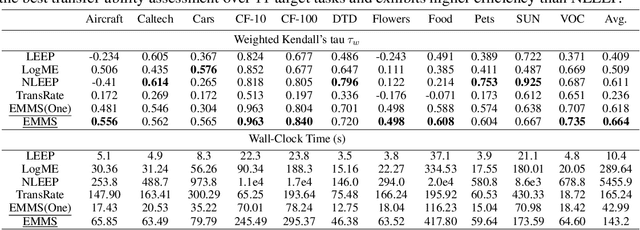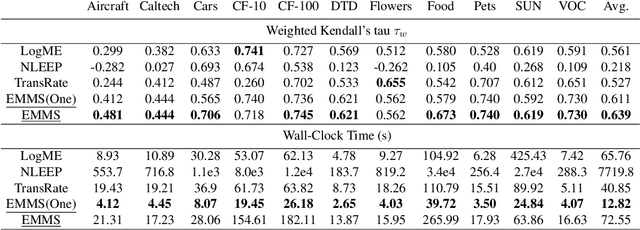Chonghe Jiang
Probe-Free Low-Rank Activation Intervention
Feb 06, 2025



Abstract:Language models (LMs) can produce texts that appear accurate and coherent but contain untruthful or toxic content. Inference-time interventions that edit the hidden activations have shown promising results in steering the LMs towards desirable generations. Existing activation intervention methods often comprise an activation probe to detect undesirable generation, triggering the activation modification to steer subsequent generation. This paper proposes a probe-free intervention method FLORAIN for all attention heads in a specific activation layer. It eliminates the need to train classifiers for probing purposes. The intervention function is parametrized by a sample-wise nonlinear low-rank mapping, which is trained by minimizing the distance between the modified activations and their projection onto the manifold of desirable content. Under specific constructions of the manifold and projection distance, we show that the intervention strategy can be computed efficiently by solving a smooth optimization problem. The empirical results, benchmarked on multiple base models, demonstrate that FLORAIN consistently outperforms several baseline methods in enhancing model truthfulness and quality across generation and multiple-choice tasks.
GETS: Ensemble Temperature Scaling for Calibration in Graph Neural Networks
Oct 12, 2024



Abstract:Graph Neural Networks deliver strong classification results but often suffer from poor calibration performance, leading to overconfidence or underconfidence. This is particularly problematic in high stakes applications where accurate uncertainty estimates are essential. Existing post hoc methods, such as temperature scaling, fail to effectively utilize graph structures, while current GNN calibration methods often overlook the potential of leveraging diverse input information and model ensembles jointly. In the paper, we propose Graph Ensemble Temperature Scaling, a novel calibration framework that combines input and model ensemble strategies within a Graph Mixture of Experts archi SOTA calibration techniques, reducing expected calibration error by 25 percent across 10 GNN benchmark datasets. Additionally, GETS is computationally efficient, scalable, and capable of selecting effective input combinations for improved calibration performance.
On the Estimation Performance of Generalized Power Method for Heteroscedastic Probabilistic PCA
Dec 06, 2023Abstract:The heteroscedastic probabilistic principal component analysis (PCA) technique, a variant of the classic PCA that considers data heterogeneity, is receiving more and more attention in the data science and signal processing communities. In this paper, to estimate the underlying low-dimensional linear subspace (simply called \emph{ground truth}) from available heterogeneous data samples, we consider the associated non-convex maximum-likelihood estimation problem, which involves maximizing a sum of heterogeneous quadratic forms over an orthogonality constraint (HQPOC). We propose a first-order method -- generalized power method (GPM) -- to tackle the problem and establish its \emph{estimation performance} guarantee. Specifically, we show that, given a suitable initialization, the distances between the iterates generated by GPM and the ground truth decrease at least geometrically to some threshold associated with the residual part of certain "population-residual decomposition". In establishing the estimation performance result, we prove a novel local error bound property of another closely related optimization problem, namely quadratic optimization with orthogonality constraint (QPOC), which is new and can be of independent interest. Numerical experiments are conducted to demonstrate the superior performance of GPM in both Gaussian noise and sub-Gaussian noise settings.
Foundation Model is Efficient Multimodal Multitask Model Selector
Aug 11, 2023



Abstract:This paper investigates an under-explored but important problem: given a collection of pre-trained neural networks, predicting their performance on each multi-modal task without fine-tuning them, such as image recognition, referring, captioning, visual question answering, and text question answering. A brute-force approach is to finetune all models on all target datasets, bringing high computational costs. Although recent-advanced approaches employed lightweight metrics to measure models' transferability,they often depend heavily on the prior knowledge of a single task, making them inapplicable in a multi-modal multi-task scenario. To tackle this issue, we propose an efficient multi-task model selector (EMMS), which employs large-scale foundation models to transform diverse label formats such as categories, texts, and bounding boxes of different downstream tasks into a unified noisy label embedding. EMMS can estimate a model's transferability through a simple weighted linear regression, which can be efficiently solved by an alternating minimization algorithm with a convergence guarantee. Extensive experiments on 5 downstream tasks with 24 datasets show that EMMS is fast, effective, and generic enough to assess the transferability of pre-trained models, making it the first model selection method in the multi-task scenario. For instance, compared with the state-of-the-art method LogME enhanced by our label embeddings, EMMS achieves 9.0\%, 26.3\%, 20.1\%, 54.8\%, 12.2\% performance gain on image recognition, referring, captioning, visual question answering, and text question answering, while bringing 5.13x, 6.29x, 3.59x, 6.19x, and 5.66x speedup in wall-clock time, respectively. The code is available at https://github.com/OpenGVLab/Multitask-Model-Selector.
 Add to Chrome
Add to Chrome Add to Firefox
Add to Firefox Add to Edge
Add to Edge